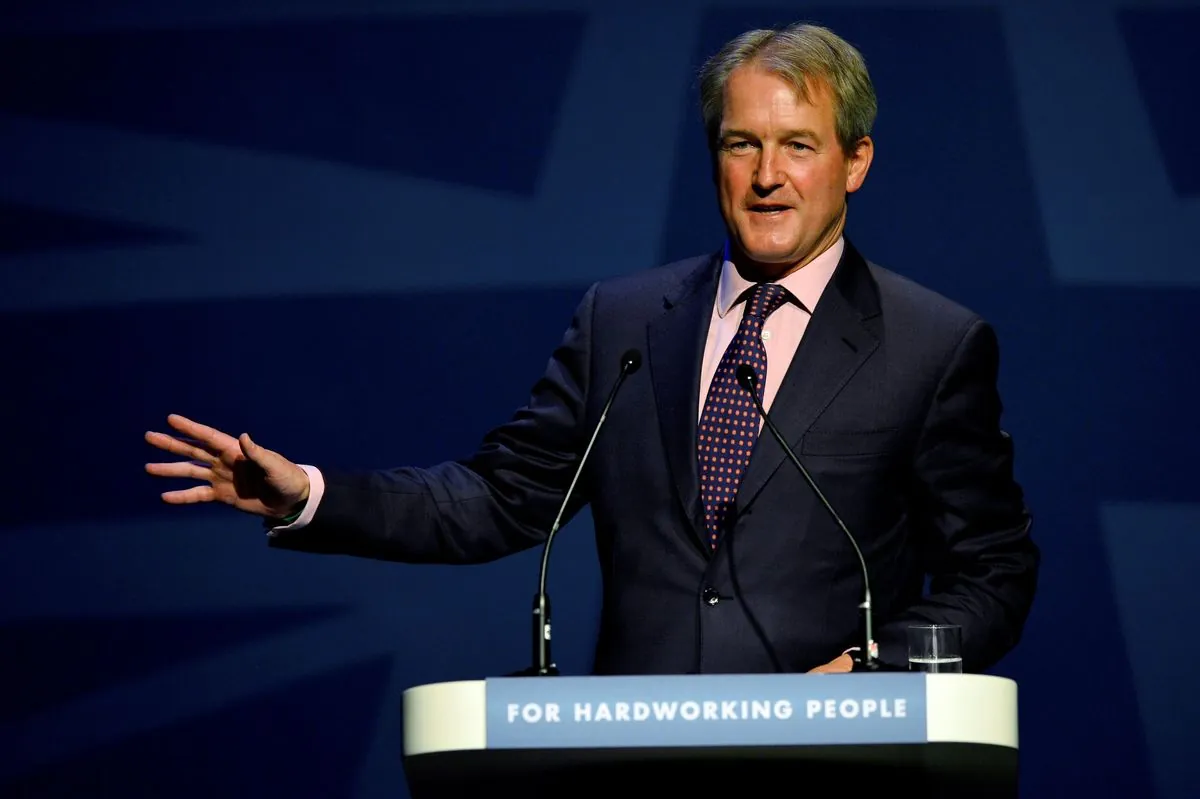European Court Rejects Ex-UK MP's Privacy Claim in Lobbying Scandal
The European Court of Human Rights unanimously dismissed former UK MP Owen Paterson's privacy complaint related to a 2021 lobbying investigation, deeming it "manifestly ill-founded".

The European Court of Human Rights has unanimously rejected a case brought by Owen Paterson, a former UK Member of Parliament, regarding a lobbying scandal that led to his resignation. This decision, announced on September 19, 2024, highlights the court's stance on the balance between public interest and individual privacy in political matters.
Paterson, who served as the Environment Secretary, faced allegations of breaching lobbying rules in 2021. The investigation found that he had repeatedly advocated for two companies, Randox and Lynn's Country Foods, which paid him over £100,000 annually. This was described as an "egregious case of paid advocacy" in the investigation report.
The former MP's complaint to the European Court centered on claims that the investigation had infringed upon his right to privacy. However, the court in Strasbourg deemed his application "inadmissible" and "manifestly ill-founded." The judges emphasized that there was a "legitimate public interest for the public to know the outcome of the parliamentary investigation into a complaint about the applicant's conduct as an MP."
Ironically, Paterson had previously criticized the very institution he turned to for recourse. In 2014, he called for the UK to "break free" from what he termed the "absurdity" of the European court. This stance aligns with his reputation as a staunch Brexiteer.

The European Court of Human Rights, established in 1959, has jurisdiction over 46 member states of the Council of Europe. It has delivered more than 10,000 judgments since its inception, often leading to significant legislative changes across Europe. The court's decisions are binding on the states concerned, underscoring its importance in shaping human rights standards across the continent.
In response to Paterson's complaint, the UK government argued that it was the responsibility of Parliament, not the courts, to regulate the conduct of MPs in their parliamentary duties. This position reflects the ongoing debate about the separation of powers and the role of international courts in domestic matters.
The case also touched on personal tragedy, as Paterson believed the investigation was a "contributing factor" to his wife's suicide during the inquiry. Despite this, the court maintained that the public interest in the case outweighed privacy concerns.
In a related development, the court also dismissed a similar case brought by former Labour peer Lord Ahmed, who had complained about a Lords investigation into sexual misconduct allegations against him. Lord Ahmed was later jailed in February 2022 for separate sexual offences against two children in the 1970s.
These rulings by the European Court of Human Rights demonstrate its commitment to upholding transparency and accountability in public life, even when faced with complex and sensitive cases involving prominent political figures.
"I bemoaned the cruel world of politics when I resigned."
The court's decision serves as a reminder of the delicate balance between individual privacy and the public's right to information about their elected representatives. It also underscores the continued relevance and authority of the European Court of Human Rights, even as some politicians have questioned its role in national affairs.


































